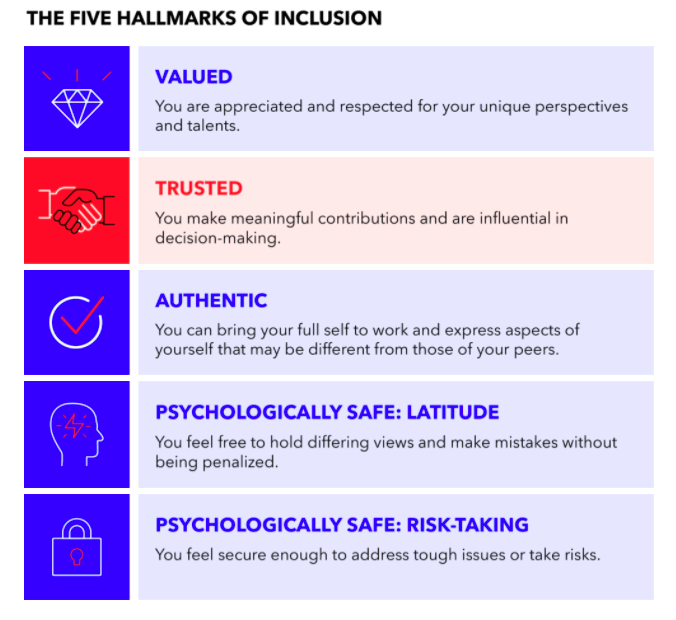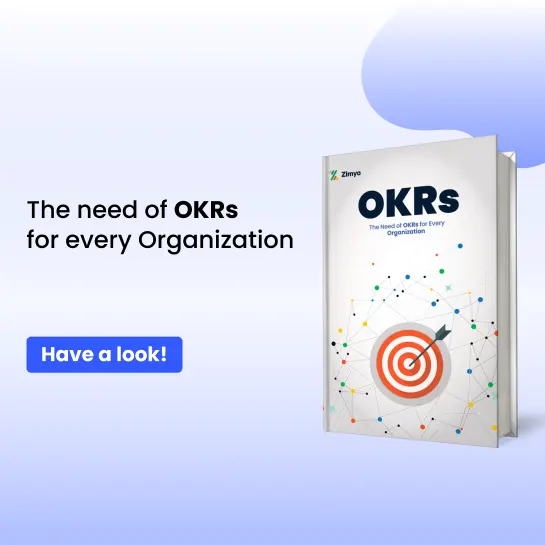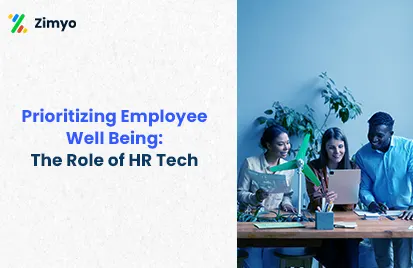In a crisis, employees need to know that their employers trust and support them. There needs to be a switch in focus from a productivity focused culture to a people centric culture. It is important to engage the employee by making them feel like they matter.
Employees are not just a cog in the machine. TRUST is an underrated and often ignored employee engagement factor. It’s more than a positive feeling: it is an action that employees experience when they are involved in the decision making process.
Catalyst research shows that the experience of being trusted is one of five defining features of an inclusive work environment.

A 2021 Research, that focused on the impact of trust on employees in Europe including the UK, found that only 46 percent employees report often or always being trusted at work.
Gallup research also found that British business leaders were falling behind their American counterparts on providing assurances to their employees and building an inclusive environment.
Building engagement strategies around trust in the organisation should be a priority rather than focusing on superficial and shallow tactics that may end up hurting employee morale. Employees who don’t trust their employers aren’t as likely to be engaged or innovative. Teams are also better at solving problems and being more cohesive if a culture of trust is built.
Why Should We Focus on Trust?
By failing to foster a sense of trust, many employers are missing out on potential contributions.
There are several benefits of a trust-worthy environment.
FOR EMPLOYEES:
- Encourages Innovation
- Employee Engagement
FOR TEAMS:
- Team Innovation
- Team goes beyond the stated objectives because they take onus of their responsibility
- Team works together to solve problems and resolve conflict
How Can Organisations Establish a Culture of Trust?
Catalyst research found that employee experiences of trust more than doubles when they perceive that their manager often leads outward.
What is leading outward? Leading outward is an individual’s ability to bolster team members capacity to be empowered, treated fairly, and flourish at work.
Here are some ways in which employers can build a culture of trust:
-
Communicate
35 percent of UK employees strongly agree that their employer has communicated a clear plan of action in response to the coronavirus, compared with 50 percent of U.S. employees.
In these unstable circumstances, it is more important than ever to keep communication lines open. Employees like being kept in the loop. Trust needs to be shown in action, which is why helping a team understand the issue and giving them the chance to find solutions and collaborate with others to implement them is a good way to build trust.
Leaders still need to hold employees accountable but studies show that the more trust a leader invests in their people, the more they behave in a way that is trustworthy.
Communicating a plan of action also helps reassure employees in a time of crisis.
-
Give Employees Control
27 percent of UK employees strongly agree that their company cares about their overall wellbeing (down from 41 percent in 2019), compared with 51 percent of U.S. employees.
The workforce needs a break from the traditional work day. Working from home has its own challenges and due to lockdown, many exhausted frontline and key workers as well as working parents and furloughed staff possibly feel anxious, disoriented and less engaged.
If you work with a remote or hybrid team, a good way to build trust and show that you care about their overall wellbeing is by giving employees control over their schedule. Flexible and agile ways to work give employees a way to balance their personal and professional life.
Don’t micromanage your employees, give them the reins. Ask them to set their own deadlines. Listen to them if they want to postpone or cancel the scheduled meetings, especially if they have familial commitments. It is the work, not the schedule that was previously followed, that should be prioritised.
Leaders should set clear goals and deliverables, how those are achieved should be left to the employee. For instance, if they’re more active and can focus better at night, give them the freedom to work at that time.
-
Set Realistic & Clear Targets
28 percent of UK employees have confidence in the leadership of their company to successfully manage emerging challenges (down from 35 percent a year ago), compared with 38 percent of U.S. employees.
It’s ok to set high expectations for improvement as it lets employees know that you trust them but don’t set unrealistic targets. Continually review the information you have and whether there has been any change in the business environment. Pass on the changes and adapt recommendations and goals if new information is revealed. This showcases that the organisation is able to manage emerging challenges!
It is important to prioritise transparency and clarity over the traditional process. Reach out to employees and proactively share changes in company wide targets, as it builds trust. For a team to work together, team members need to know the purpose of their work and their end goal. If updated information on new policies or goals is shared, managers should be encouraged to communicate and check if employees have any questions or concerns.
-
Provide Real-Time Feedback
HR needs to communicate clearly and consistently across the organisation and ask for regular feedback from employees on what’s working well and what can be improved. Employees like to work for organisations with integrity and they like to feel listened to, so managers need to make themselves available for these conversations.
~ Liz Sebag-Montefiore, Director and Co-Founder of HR consultancy 10 Eighty
Give employees consistent and ongoing feedback instead of waiting for an annual review. This will also give employees the opportunity to communicate the challenges they are facing and share where they need support. Additionally, give employees the opportunity to tweak the process if it would help them achieve the goals you have set.
Trust is reciprocal, the more employees feel supported and trusted, the more personal responsibility they will feel towards tasks the employer sets.
Avoiding micromanagement and adopting a flexible approach is key for encouraging trust at work. It’s also important for employers to take a step back and allow some breathing room during this time.
Prior disasters have shown that talented managers can maintain their employees’ engagement even in different circumstances. Good leaders need to focus on building accountability and ownership in their employees, only then will employees remain engaged.
What steps will you be taking to foster a culture of TRUST in your organisation? Let us know in the comments below.
Also Read: How To Improve Employee Engagement During Return-To-Office Process?







